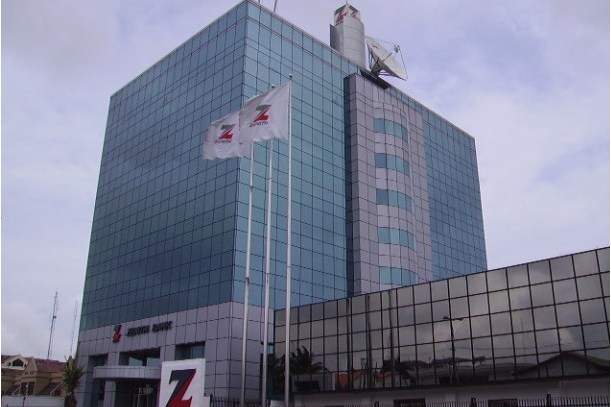Whistleblower protection crucial for anti-graft in banking

Summary
Passing the Whistleblower Protection Bill into law would assist in the anti-corruption drive of the current administration.
Introduction
The disclosure of an illegal or immoral behaviour of a company, or those who are placed in positions of responsibility, can be referred to as whistleblowing. (Arszulowicz, M. and Gasparski, W.W. 2011). There are several requirements for qualifying an act as “disclosed information”. Firstly, there is the intentional disclosure of information. Secondly, the person disclosing this information would normally be within close proximity to the employer. Thirdly, the information being disclosed needs to pertain to the organisation in question. Finally, the disclosure needs to be in the public or private interest.
A whistleblower could potentially be a stakeholder in an organisation who does not necessarily work in close proximity with the individual(s) who could be liable to any breach of an organisation's code of conduct. But for the purpose of this article, whistleblowing is limited to those who are considered workers/employees in the Nigerian banking industry.
Efforts have been made to curtail bad practices in the Nigerian banking sector. These efforts are evident in some statutory provisions, including Economic and Financial Crimes Commission Act 2004, but primarily, the Guidelines issued by the Central Bank of Nigeria (CBN) in 2012. The Guidelines were created to provide stakeholders and employees with the opportunity to report acts that may constitute as fraud, unlawful behaviour or a failure to comply with bank related directives. The aim of the Guidelines is, therefore, to encourage and further uphold good corporate governance practices and in doing so, also maintain consumer confidence. (Guidelines Revised 2014).
State of whistleblower legislation in Nigeria
The Whistleblowing Guidelines provide that the Board of Directors of banks and other financial institutions are required to implement a whistleblowing system and additionally, set up a policy for stakeholders and employees. Section 4.0 of the Guidelines provides that the anonymity of the whistleblower needs to be ensured. This section also provides that “no bank, or financial institution shall subject a whistleblower to dismissal, redundancy, termination, undue influence, duress, withholding of benefits, and any other act that may have a negative impact on the whistleblower.” However, whilst the Guidelines provide this protection for whistleblowers, it fails to provide recourse in the case that a whistleblower faces any of the above backlashes.
Whistleblowing can be highly instrumental in curtailing corruption in the banking industry. However, the tradition of whistleblowing in Nigeria has not been entrenched. This may be attributed to the currently limited and ineffectual legal framework for whistleblowing in the banking system. On a general level, it is not common for members of staff who are witnesses to the improper conducts of their superiors to consider reporting such incidents. (Before we go further, it is important to note that this inaction is not peculiar to the banking sector.)
The CBN Guidelines fall short of offering a robust mechanism to protect whistleblowers. The Guidelines offer no internal mechanisms or procedures to cater to a whistleblower in the event that their identity is exposed. This means there is still a chance that the whistleblower may report an incident and remain unprotected. This further illustrates that there are no strong measures in place to ensure that the whistleblower will not face a serious disciplinary sanction, unfair dismissal or suffer discrimination from their employers.
The loopholes indicated above imply that the Achilles' heel is not necessarily in the absence of laws that deal with whistleblowing, but rather, the non-existence of sound procedures to offer protection to whistleblowers. The mechanisms available currently have proven inadequate in providing protection, as confirmed by Nigeria's poor track record in curtailing corruption. At present, there is a Whistleblower Protection Bill before the National Assembly. (Nass.gov.ng SB. 233 C4781 2015) The Bill places emphasis on ensuring the protection of whistleblowers. The enactment of this Bill will change the corporate culture of turning a blind eye to evident wrongdoings in banking.
Protection for whistleblowers
In closely-knit industries, whistleblowers can be blacklisted. In such circumstances, obtaining work with another employer within that industry could be a challenge. In the UK, there are provisions to protect blacklisted former employees. (S.43 (b) Public Disclosure Act 1998 and also: S.19 Enterprise and Regulatory Reform Act 2013)
The acceptable forms of recourse in the Nigerian banking sector would be to implement procedures that allow an employee to institute an action against his or her employer, in the event that a whistleblower suffers any backlash.
A notable example of someone who suffered political backlash for public disclosure of wrongdoing was former CBN Governor, Sanusi Lamido Sanusi. He had alleged that funds were “missing” from the State Oil Corporation, Nigerian National Petroleum Corporation (NNPC), in 2013. It was claimed by the CBN that over $20bn of Nigeria's oil proceeds was unaccounted for. Mr. Sanusi was suspended by the then President Goodluck Jonathan. The bogus reason for his suspension, among other things, was “financial recklessness, fraud, and fiscal misconduct.”
In the case of the bank CEO's who were sacked by the CBN in 2008, investigations showed that these CEO's issued loans to bogus companies and in the process, accumulated assets which were substantially greater than their annual salaries. The only plausible explanation, and the conclusion drawn by the CBN, was misuse of power by the bank executives.
It is conceivable that in carrying out some of these fraudulent financial transactions, some bank staff would have been involved or aware. However, since the CBN Guidelines were only issued in 2012, there was clearly a gap in regulatory backing for witnesses to report such activities.
Conclusion
The passing of the Whistleblower Protection Bill would, therefore, be highly welcomed. This single legislative instrument would be beneficial and would bridge the gap where the other statutory provisions appear to neglect. The Bill, therefore, will provide a safe haven for whistleblowing.
The departure from following agreed standards is a culture embedded in Nigeria's financial industry. This culture gives rise to a high level of insider dealings and market abuse. It is possible for staff to bypass certain security protocols if a customer is well known or highly respected. Preferential treatment is given to known persons by departing from acceptable banking practice. Whether this departure results in a severe consequences or not, the act usually remains undisclosed.
It is possible that banks, wittingly or unwittingly, are used as channels for money laundering. In the instance that members of staff are able to bypass certain security measures, it further affords money launderers the ability to launder money through banks undetected. If this then remains unreported by members of staff who witness their superiors bypassing these necessary checks, it further enhances the operations of money laundering. Thus, passing the Whistleblower Protection Bill into law would assist in the anti-corruption drive of the current administration of President Muhammadu Buhari and strengthen Nigeria's banking industry.
Fola Adeyemo is a Doctoral Candidate and Research Associate at the Centre for International Public Law, Brunel University, England. Email: Folashade.Adeyemo@brunel.ac.uk
Related
-
SMEs as catalysts for progress in sustainability
SMEs contribute not only to environmental preservation but also to poverty alleviation, social equity, and the development ...
-
Access Bank receives awards for innovation and financial performance
Access Bank won Bank of the Year Nigeria at The Banker's Awards, as well as Best Bank in Nigeria and Best Product Launch ...
-
Sustainability is transforming Nigerian financial institutions
Access Bank was the first African commercial bank to be sustainability certified by the European Organisation for ...







